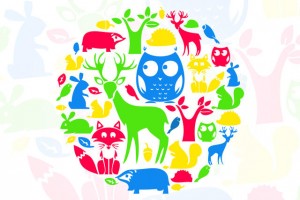Elephants are dying by the tens of thousands every year in Africa, and all for the price of ivory, which countries like China are willing to pay large amounts to obtain. The problem is huge and gets worse every day, and even African governments are helping to spread the blood.
This tragedy might sound like a distant nightmare since we have happy elephants just a short drive away in the Denver Zoo, being fed peanuts by their keepers and spending nights in safe stalls. However, this is not a fleeting dream, nor a personal problem. This story takes a look at injustice in the animal and human world and shows how human greed and exploitation devastates everything in its path for something as trivial as ivory bookends or earrings.
In the last few years, Africa—especially in the Congo and Gabon—has been ground zero for the ongoing massacre of elephants. As much ivory as possible is being collected and shipped back to China, where well-off families spend hundreds of thousands of dollars for ivory sculptures, pieces of jewelry, or other fine art items.
Today, China is the main destination for the brutally stolen ivory, and in his New York Times article, Gettleman explains that China has always had a market for ivory. Their economic boom has allowed many more people—not just the rich—the ability to buy ivory. With the increase in demand, prices for ivory have skyrocketed. The amount of money the Chinese are willing to pay for tusks is more than enough to convince criminal groups, illegal poachers, members of the African armies and individual hunters, like the article’s Vincent Biyogo, to lethally seek out fast-vanishing herds of elephants. Some desire “white gold” and others are simply desperate, but no matter what the reason, these noble creatures will be exterminated.
This extermination process has already begun and, more alarming and horrific than the rate of decline, is the fact that the elephants being killed are not just the big guys with beautiful tusks. It’s all of them: the young, the old, the pregnant—it makes no difference.
The conflicts raging around this issue are vast and the signs of slaughter cannot be missed. Piles of dead elephant carcasses that criminal gangs mutilated by cutting off their “faces with chain saws” can be found left in their gory horror to rot.
Sympathy for the elephants is soaring. As for man, it may be a bit harder to get those sentiments off the ground, but, as I said in the beginning, this tale is tragic for all species involved. Though the elephants are losing their lives, many of the people, like Vincent Biyogo, are struggling to save their own.
“’When I was born,’ Biyogo says in the article, ‘I dreamed of a better life, I dreamed of driving a car, going to school, living like a normal human being.’ ‘Not this,’ he added quietly, staring at a pot of boiling caterpillars. ‘Not this.’”
Biyogo’s life does not involve driving a car or going to school. Biyogo is not lucky enough for such luxuries in his economic situation that only allows him caterpillars as nourishment, a food source that here, is only meant for the birds.
As college students who have nothing but dreams of fulfillment and a happy future, we of all people should feel empathy for Biyogo and the many like him. We should not judge his choice of hunting elephants in the hopes of making enough money to better his life. I wish I could offer a solution, but for now I can only give my words and the hope that the Western world will care about what is happening.
Contact CU Independent Staff Writer Kitty Winograd at Kitty.winograd@colorado.edu.

